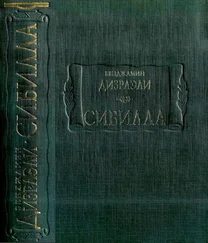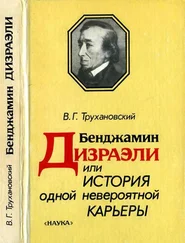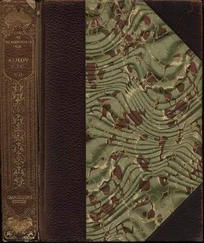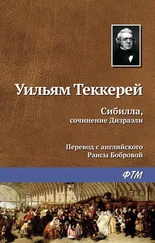Бенджамин Дизраэли - Tancred
Здесь есть возможность читать онлайн «Бенджамин Дизраэли - Tancred» весь текст электронной книги совершенно бесплатно (целиком полную версию без сокращений). В некоторых случаях можно слушать аудио, скачать через торрент в формате fb2 и присутствует краткое содержание. Год выпуска: 2014, Издательство: epubBooks Classics, Жанр: Классическая проза, на английском языке. Описание произведения, (предисловие) а так же отзывы посетителей доступны на портале библиотеки ЛибКат.
- Название:Tancred
- Автор:
- Издательство:epubBooks Classics
- Жанр:
- Год:2014
- ISBN:нет данных
- Рейтинг книги:4 / 5. Голосов: 1
-
Избранное:Добавить в избранное
- Отзывы:
-
Ваша оценка:
- 80
- 1
- 2
- 3
- 4
- 5
Tancred: краткое содержание, описание и аннотация
Предлагаем к чтению аннотацию, описание, краткое содержание или предисловие (зависит от того, что написал сам автор книги «Tancred»). Если вы не нашли необходимую информацию о книге — напишите в комментариях, мы постараемся отыскать её.
Tancred — читать онлайн бесплатно полную книгу (весь текст) целиком
Ниже представлен текст книги, разбитый по страницам. Система сохранения места последней прочитанной страницы, позволяет с удобством читать онлайн бесплатно книгу «Tancred», без необходимости каждый раз заново искать на чём Вы остановились. Поставьте закладку, и сможете в любой момент перейти на страницу, на которой закончили чтение.
Интервал:
Закладка:
'And he did quite right, my child,' said Prevost, 'for there is not a man in Europe that is your equal. What do they say? That Abreu rivals you in flavour, and that Gaillard has not less invention. But who can combine goût with new combinations? 'Tis yourself, Leander; and there is no question, though you have only twenty–five years, that you are the chef of the age.'
'You are always very good to me, sir,' said Leander, bending his head with great respect; 'and I will not deny that to be famous when you are young is the fortune of the gods. But we must never forget that I had an advantage which Abreu and Gaillard had not, and that I was your pupil.'
'I hope that I have not injured you,' said Papa Prevost, with an air of proud self–content. 'What you learned from me came at least from a good school. It is something to have served under Napoleon,' added Prevost, with the grand air of the Imperial kitchen. 'Had it not been for Waterloo, I should have had the cross. But the Bourbons and the cooks of the Empire never could understand each other: They brought over an emigrant chef, who did not comprehend the taste of the age. He wished to bring everything back to the time of the oeil de bouf . When Monsieur passed my soup of Austerlitz untasted, I knew the old family was doomed. But we gossip. You wished to consult me?'
'I want not only your advice but your assistance. This affair of the Duke of Bellamont requires all our energies. I hope you will accompany me; and, indeed, we must muster all our forces. It is not to be denied that there is a want, not only of genius, but of men, in our art. The cooks are like the civil engineers: since the middle class have taken to giving dinners, the demand exceeds the supply.'
'There is Andrien,' said Papa Prevost; 'you had some hopes of him?'
'He is too young; I took him to Hellingsley, and he lost his head on the third day. I entrusted the soufflées to him, and, but for the most desperate personal exertions, all would have been lost. It was an affair of the bridge of Areola.'
'Ah! mon Dieu! those are moments!' exclaimed Prevost. 'Gaillard and Abreu will not serve under you, eh? And if they would, they could not be trusted. They would betray you at the tenth hour.'
'What I want are generals of division, not commanders–in–chief. Abreu is sufficiently bon garçon , but he has taken an engagement with Monsieur de Sidonia, and is not permitted to go out.'
'With Monsieur de Sidonia! You once thought of that, my Leander. And what is his salary?'
'Not too much; four hundred and some perquisites. It would not suit me; besides, I will take no engagement but with a crowned head. But Abreu likes travelling, and he has his own carriage, which pleases him.'
'There are Philippon and Dumoreau,' said Prevost; 'they are very safe.'
'I was thinking of them,' said Leander, 'they are safe, under you. And there is an Englishman, Smit, he is chef at Sir Stanley's, but his master is away at this moment. He has talent.'
'Yourself, four chefs, with your marmitons; it would do,' said Prevost.
'For the kitchen,' said Leander; 'but who is to dress the tables?'
'A–h!' exclaimed Papa Prevost, shaking his head.
'Daubuz' head man, Trenton, is the only one I could trust; and he wants fancy, though his style is broad and bold. He made a pyramid of pines relieved with grapes, without destroying the outline, very good, this last week, at Hellingsley. But Trenton has been upset on the railroad, and much injured. Even if he recover, his hand will tremble so for the next month that! could have no confidence in him.'
'Perhaps you might find some one at the Duke's?'
'Out of the question!' said Leander; 'I make it always a condition that the head of every department shall be appointed by myself. I take Pellerini with me for the confectionery. How often have I seen the effect of a first–rate dinner spoiled by a vulgar dessert! laid flat on the table, for example, or with ornaments that look as if they had been hired at a pastrycook's: triumphal arches, and Chinese pagodas, and solitary pines springing up out of ice–tubs surrounded with peaches, as if they were in the window of a fruiterer of Covent Garden.'
'Ah! it is incredible what uneducated people will do,' said Prevost. 'The dressing of the tables was a department of itself in the Imperial kitchen.'
'It demands an artist of a high calibre,' said Leander. 'I know only one man who realises my idea, and he is at St. Petersburg. You do not know Anastase? There is a man! But the Emperor has him secure. He can scarcely complain, however, since he is decorated, and has the rank of full colonel.'
'Ah!' said Prevost, mournfully, 'there is no recognition of genius in this country. What think you of Vanesse, my child? He has had a regular education.'
'In a bad school: as a pis aller one might put up with him. But his eternal tiers of bonbons! As if they were ranged for a supper of the Carnival, and my guests were going to pelt each other! No, I could not stand Vanesse, papa.'
'The dressing of the table: 'tis a rare talent,' said Prevost, mournfully, 'and always was. In the Imperial kitchen―—'
'Papa,' said Eugenie, opening the door, and putting in her head, 'here is Monsieur Vanillette just come from Brussels. He has brought you a basket of truffles from Ardennes. I told him you were on business, but to–night, if you be at home, he could come.'
'Vanillette!' exclaimed Prevost, starting in his chair, 'our little Vanillette! There is your man, Le–ander. He was my first pupil, as you were my last, my child. Bring up our little Vanillette, Eugenie. He is in the household of King Leopold, and his forte is dressing the table!'
Chapter II.
The House of Bellamont
THE Duke of Bellamont was a personage who, from his rank, his blood, and his wealth, might almost be placed at the head of the English nobility. Although the grandson of a mere country gentleman, his fortunate ancestor, in the decline of the last century, had captivated the heiress of the Montacutes, Dukes of Bellamont, a celebrated race of the times of the Plantagenets. The bridegroom, at the moment of his marriage, had adopted the illustrious name of his young and beautiful wife. Mr. Montacute was by nature a man of energy and of an enterprising spirit. His vast and early success rapidly developed his native powers. With the castles and domains and boroughs of the Bellamonts, he resolved also to acquire their ancient baronies and their modern coronets. The times were favourable to his projects, though they might require the devotion of a life. He married amid the disasters of the American war. The king and his minister appreciated the independent support afforded them by Mr. Montacute, who represented his county, and who commanded five votes in the House besides his own. He was one of the chief pillars of their cause; but he was not only independent, he was conscientious and had scruples. Saratoga staggered him. The defection of the Montacute votes, at this moment, would have at once terminated the struggle between England and her colonies. A fresh illustration of the advantages of our parliamentary constitution! The independent Mr. Montacute, however, stood by his sovereign; his five votes continued to cheer the noble lord in the blue ribbon, and their master took his seat and the oaths in the House of Lords, as Earl of Bellamont and Viscount Montacute. This might be considered sufficiently well for one generation; but the silver spoon which some fairy had placed in the cradle of the Earl of Bellamont was of colossal proportions. The French Revolution succeeded the American war, and was occasioned by it. It was but just, therefore, that it also should bring its huge quota to the elevation of the man whom a colonial revolt had made an earl. Amid the panic of Jacobinism, the declamations of the friends of the people, the sovereign having no longer Hanover for a refuge, and the prime minister examined as a witness in favour of the very persons whom he was trying for high treason, the Earl of Bellamont made a calm visit to Downing Street, and requested the revival of all the honours of the ancient Earls and Dukes of Bellamont in his own person. Mr. Pitt, who was far from favourable to the exclusive character which distinguished the English peerage in the last century, was himself not disinclined to accede to the gentle request of his powerful supporter; but the king was less flexible. His Majesty, indeed, was on principle not opposed to the revival of titles in families to whom the domains without the honours of the old nobility had descended; and he recognised the claim of the present Earls of Bellamont eventually to regain the strawberry leaf which had adorned the coronet of the father of the present countess. But the king was of opinion that this supreme distinction ought only to be conferred on the blood of the old house, and that a generation, therefore, must necessarily elapse before a Duke of Bellamont could again figure in the golden book of the English aristocracy.
Читать дальшеИнтервал:
Закладка:
Похожие книги на «Tancred»
Представляем Вашему вниманию похожие книги на «Tancred» списком для выбора. Мы отобрали схожую по названию и смыслу литературу в надежде предоставить читателям больше вариантов отыскать новые, интересные, ещё непрочитанные произведения.
Обсуждение, отзывы о книге «Tancred» и просто собственные мнения читателей. Оставьте ваши комментарии, напишите, что Вы думаете о произведении, его смысле или главных героях. Укажите что конкретно понравилось, а что нет, и почему Вы так считаете.







![Мелани Бенджамин - Госпожа отеля «Ритц» [litres]](/books/384861/melani-bendzhamin-gospozha-otelya-ritc-litres-thumb.webp)




